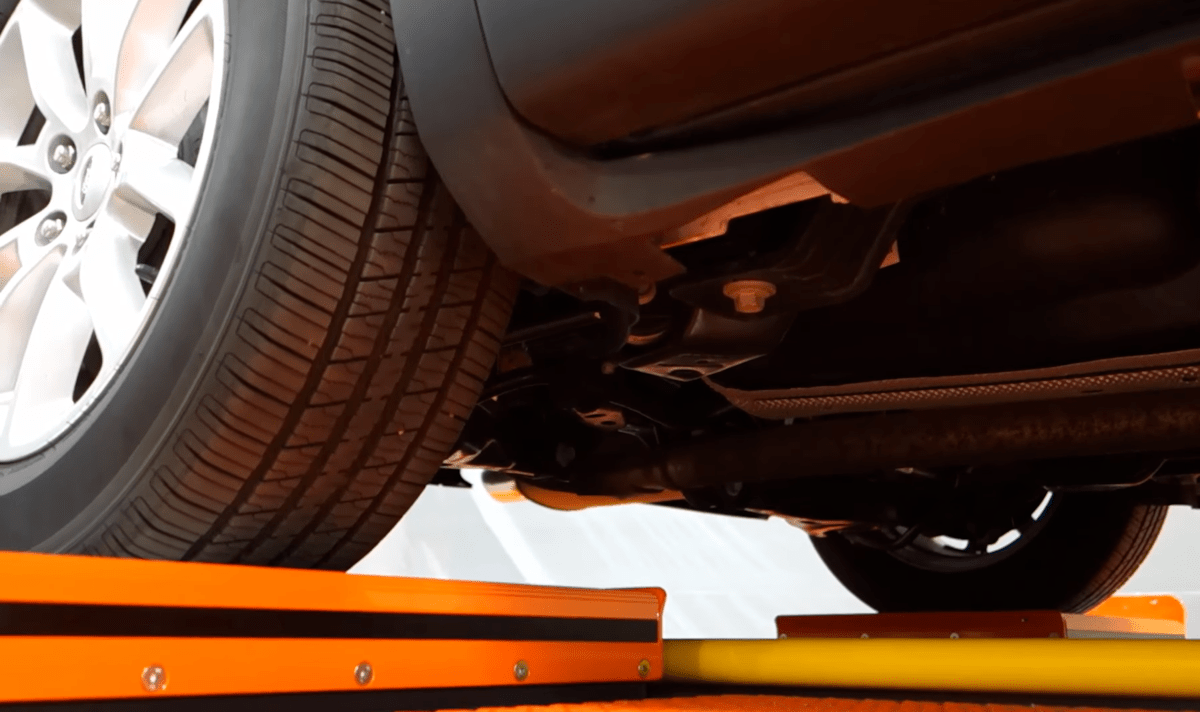EN 13749 Fatigue Testing of Railway Vehicle Bogie Frames
The EN 13749 standard is a crucial document in railway vehicle engineering as it specifies the fatigue testing methodology for bogie frames. This test ensures that the components of railway vehicles can withstand the dynamic loading conditions experienced during operation without failure.
Bogie frames are critical structural elements supporting the running gear and passenger or freight-carrying compartments. They must be robust enough to handle high levels of stress, particularly in environments where vibrations and fatigue from repeated cycles of acceleration, braking, and turns are common. The EN 13749 test focuses on simulating these real-world conditions through controlled laboratory testing.
The standard is designed to ensure that the materials used for bogie frames meet stringent durability requirements. It mandates a series of tests aimed at identifying potential weaknesses or defects in the design and manufacturing process. These tests help manufacturers identify areas where improvements can be made, thereby enhancing the overall safety and reliability of railway vehicles.
During fatigue testing, specimens are subjected to cyclic loading that mimics the operational stresses encountered during service life. This includes both static loads (such as the weight of the vehicle and its payload) and dynamic forces induced by acceleration and braking. The test aims to determine whether the specimen can withstand a specified number of load cycles without exhibiting signs of fatigue failure.
The testing process typically involves the use of sophisticated equipment capable of applying controlled, repetitive loading to the bogie frame specimens. This may include hydraulic or electric servohydraulic actuators that provide precise control over the applied forces and displacements. The test setup often includes environmental chambers that can simulate different operating conditions such as temperature variations.
The acceptance criteria for EN 13749 are based on the structural integrity of the specimen after undergoing the prescribed number of load cycles. Specimens that fail to meet these criteria may indicate design flaws or manufacturing defects, necessitating further investigation and corrective actions. Compliance with this standard ensures that railway vehicle bogie frames can perform reliably under challenging operating conditions.
Understanding the scope of EN 13749 fatigue testing is essential for those involved in quality management, compliance, R&D, and procurement within the railway sector. By adhering to these stringent standards, manufacturers can enhance the safety and longevity of their products, ultimately contributing to more efficient and safer transportation systems.
Accredited laboratories like Eurolab have extensive experience conducting EN 13749 fatigue tests on various types of bogie frames. Our state-of-the-art facilities and experienced engineers ensure that each test is conducted with precision and accuracy, providing reliable data for stakeholders involved in railway vehicle design and manufacturing.
Benefits
Compliance with EN 13749 fatigue testing brings numerous benefits to the railway industry:
- Enhanced Safety: Ensures that bogie frames can withstand the rigors of real-world operations without failure.
- Improved Durability: Identifies potential weaknesses in design and manufacturing, leading to longer-lasting products.
- Regulatory Compliance: Meets the stringent requirements set by international standards, ensuring legal compliance.
- Cost Efficiency: By identifying and addressing issues early in the development process, manufacturers can avoid costly repairs or replacements later on.
- Enhanced Reputation: Demonstrates a commitment to quality and safety, enhancing the reputation of the manufacturer within the industry.
- Innovation: Provides valuable data that can be used for continuous improvement in product design and manufacturing processes.
In summary, EN 13749 fatigue testing is a vital tool in ensuring the reliability and safety of railway vehicle bogie frames. By adhering to this standard, manufacturers can enhance their products' performance while also meeting regulatory requirements.
Eurolab Advantages
At Eurolab, we pride ourselves on offering comprehensive services tailored to meet the needs of our clients in the railway sector. Our expertise in conducting EN 13749 fatigue testing is just one example of how we support quality managers, compliance officers, R&D engineers, and procurement teams.
- Accurate Testing: Our state-of-the-art facilities ensure that every test conducted meets the highest standards of accuracy and precision.
- Experienced Engineers: Our team of experienced engineers provides valuable insights into testing methodologies and results, helping clients make informed decisions.
- Comprehensive Reporting: We offer detailed reports that provide clear interpretations of test results, aiding in product development and quality assurance.
- Regulatory Compliance: Our services ensure compliance with international standards, helping clients navigate complex regulatory landscapes.
- Custom Solutions: We understand that each client has unique needs. Our team works closely with clients to develop custom solutions that meet specific requirements.
- Fast Turnaround Times: We pride ourselves on providing timely services, ensuring minimal disruption to our clients' operations.
In conclusion, Eurolab's commitment to excellence and innovation ensures that we provide the best possible support for clients in conducting EN 13749 fatigue testing. Our expertise and resources are at your disposal whenever you need them.
Why Choose This Test
The decision to conduct EN 13749 fatigue testing is a strategic move that can significantly impact the quality, safety, and performance of railway vehicle bogie frames. Here’s why this test is essential:
- Ensures Durability: By simulating real-world operating conditions, this test helps identify potential weaknesses that could lead to premature failure.
- Enhances Safety: The standard ensures that bogie frames can withstand the dynamic loading experienced during operation without compromising safety.
- Regulatory Compliance: Meeting this standard is mandatory for compliance with international regulations, ensuring that products are legally acceptable.
- Cost Efficiency: Early identification and correction of issues can save significant costs associated with product failures or recalls.
- Enhances Reputation: Demonstrating commitment to quality and safety through compliance with international standards enhances the reputation of manufacturers within the industry.
- Supports Innovation: The data generated from these tests can be used to drive innovation in product design and manufacturing processes.
In conclusion, EN 13749 fatigue testing is a critical step in ensuring the reliability and safety of railway vehicle bogie frames. By choosing this test, manufacturers can demonstrate their commitment to quality and safety while also staying ahead of regulatory requirements.





